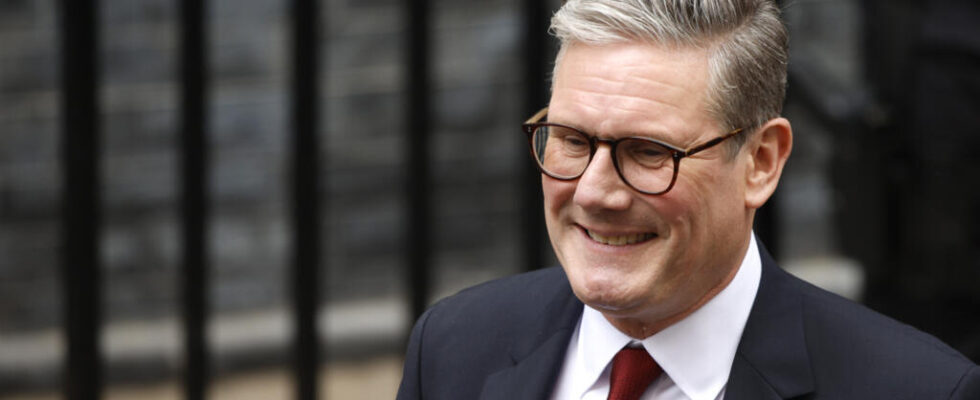After a landslide victory this Thursday, July 4, during the general elections, the Labour Party and its leader Keir Starmer know that they are expected. And the challenges that await Labour are numerous, after 14 years under Conservative government. And even the British economy is experiencing a slight rebound, the state of public finances will not facilitate the work of a party that was ambitious during the election campaign.
2 min
Keir Starmer may not have time to celebrate his victory, given the many projects that await him and the upcoming meetings that are close, the first of which begins on Tuesday July 9 in Washington with the NATO summit, even if the foreign policy of the United Kingdom should not change too much with the arrival of Labour. Keir Starmer has promised to maintain his support for Ukraine and to increase military spending, which should be confirmed as early as next Tuesday in Washington.
Domestically, Labour will be particularly active in the area of health, with the NHS, the British health system, which has been in dire straits for many years. The idea is to reduce waiting lists for access to care.
Repeal the immigration agreement with Rwanda
Immigration will also be a major focus of attention. Keir Starmer has promised to immediately abandon the Conservatives’ plan to deport migrants to Rwanda. An ineffective policy according to the leader of the Labor Party, which wants to create a new border security force as the country reaches record levels of illegal immigration.
Read alsoUK election: Labour victory threatens controversial migration partnership with Rwanda
Keir Starmer also wants to put in place a plan for the construction of one and a half million homes in the next five years in order to support a sector in crisis. Urgent projects that the British are eagerly awaiting.
A battered economy
Labor inherits an economy battered by a series of crises. Starting with the Brexitthrough the pandemic, and ending with the energy and purchasing power crisis. The country has, of course, emerged from the recession it fell into at the end of 2023, inflation has slowed to 2%, and British GDP grew by 0.7% in June.
But public debt is flirting with 100% of British GDP and the government has little room for maneuver. Rachel Reeves, Minister of Finance, the first woman to hold this position in history, promises budgetary discipline and moderate tax increases. The City of London says it is ready to help the government. A government expected to turn the tide to straighten out public services, in particular health, which is out of breath, and education.
Read alsoUnited Kingdom: Angela Rayner and Rachel Reeves, two leading figures in the Starmer government
